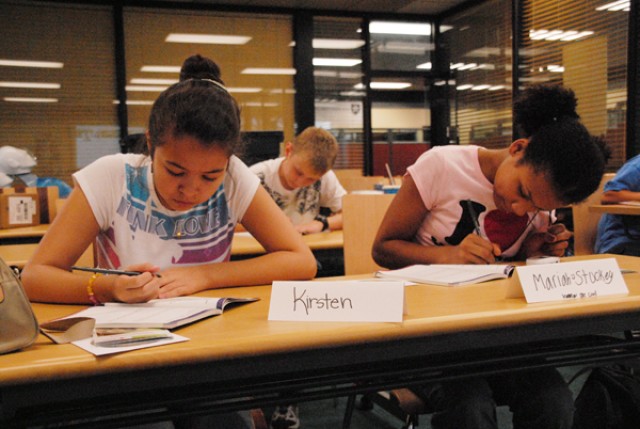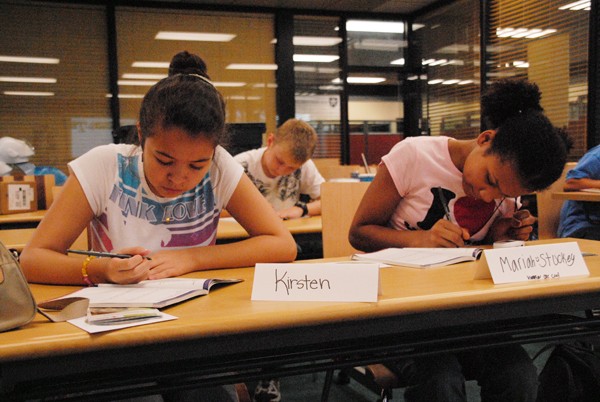RED CLOUD GARRISON South Korea - The American Red Cross offered Warrior Country Soldiers and community members a class about baby-sitting July 22-23 in the 1st Heavy Brigade Combat Team's Family Readiness Center. The two-day class taught adults and children important lessons about what to expect while baby-sitting someone's child and teaching them cardiopulmonary resuscitation and certifying them.
The class began with an icebreaker, an activity used to motivate, help people relax, and get to know each other. The exercise began with a roll of toilet paper, which was passed around so the participants could take as much as they thought they would use in one day. At that point the participants were to rip off a single piece of toilet paper and with each piece of paper they were to tell the class something about themselves.
After the icebreaker, Jana Fullmer, Warrior Country American Red Cross station manager, officially started the class.
"All the other American Red Cross stations have been holding this class. When I was in Okinawa, Japan, we held classes for children. We at the American Red Cross, and the chain of command, want tour normalization, and want to offer this class for Family members and give them an opportunity to learn the skills to be good baby-sitters," Fullmer said.
Fullmer, who taught both days of the class, then asked the class to tell five good things about themselves, which would help them become a good baby-sitter.
Crystal Roofe, a student taking the baby-sitting class, said the main reason she thinks she would be a good baby sitter is because she likes babies and takes baby-sitting seriously.
The class began to learn the important elements, which make a good baby sitter. Fullmer provided the class with the acronym FIND (which means, identify, name, and decide) for the class to use as a guideline if they are confused.
The class watched a video about what do to do in certain situations. One scenario in particular divided the class, where the class watched a baby sitter try to put an unruly child to bed. The child's parents told the baby sitter he should go to bed at a certain time, but the child refused to listen to his baby sitter and demanded more time to play.
While Roofe suggested the baby sitter should tell the child in a cheerful manner to go to bed because the next day is going to be a fun day for the child, Chris Schwartz, a student in the class, thought the child did not want to go to bed because he was not tired. He told the class maybe if the baby sitter would lie near the bed until the child went to the bed it would help.
Other students suggested the baby sitter should simply call the parents, feign to call the parents but do not, or, one student said, maybe the child needs to play until he is tired.
"I really enjoyed teaching this class," Fullmer said. "I found all the students well behaved, intelligent, and eager to apply the skills they learned in class." Fullmer added to her instructions by saying all suggestions could work, it only matters how the baby sitter wishes to deal with those situations.


Social Sharing